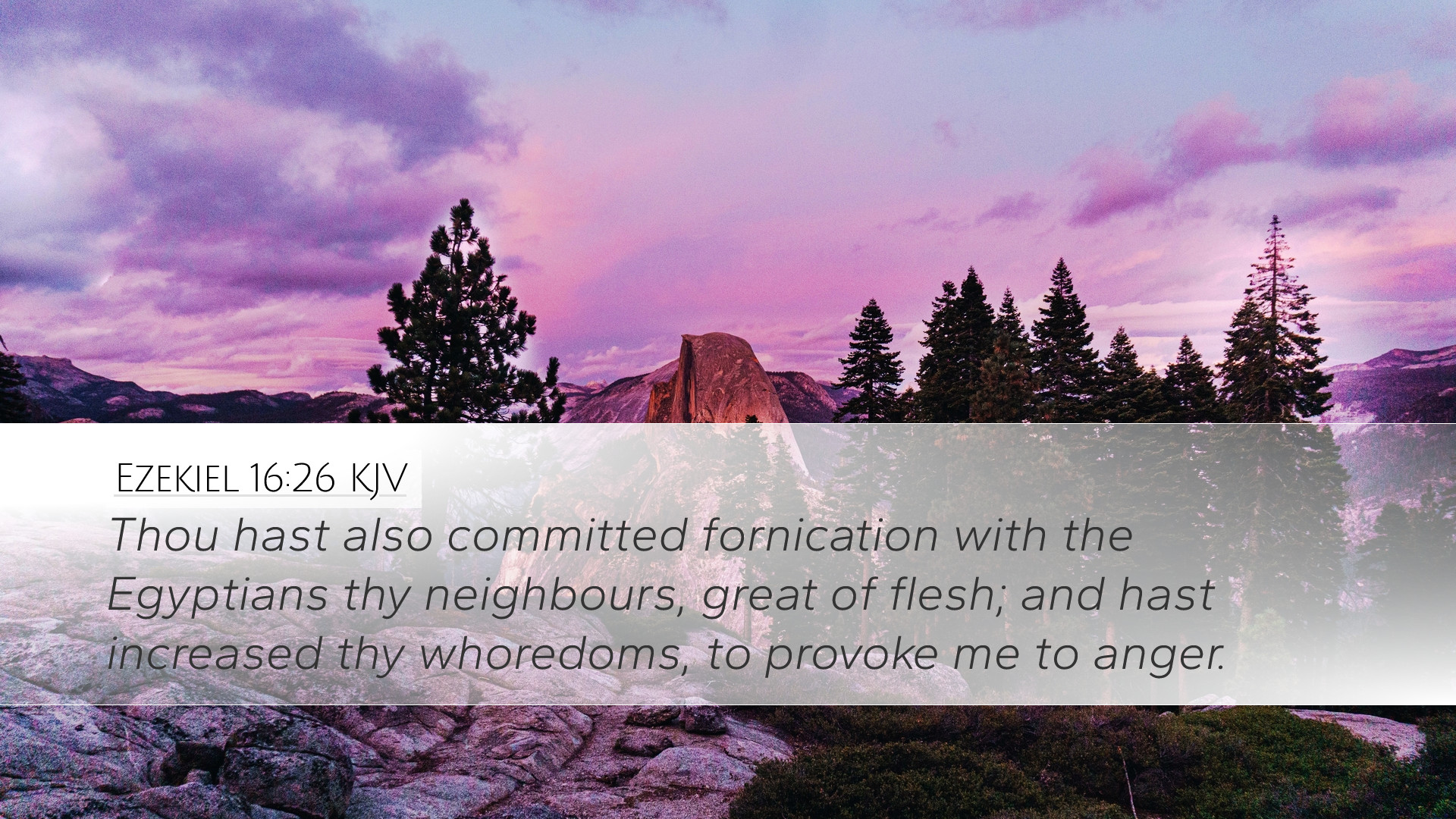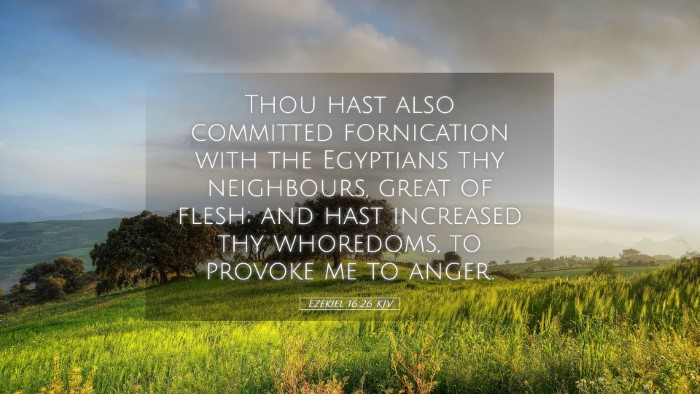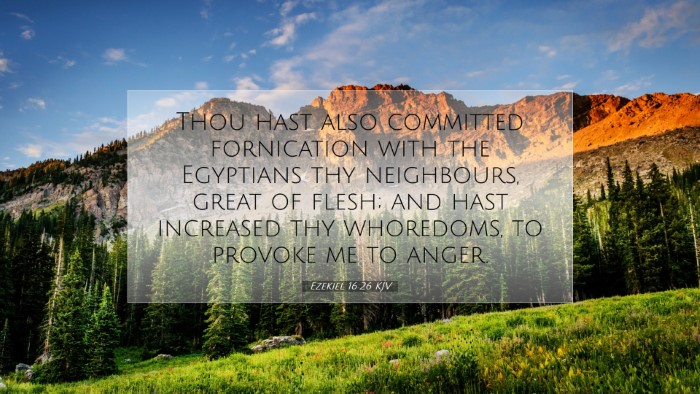Ezekiel 16:26 - Commentary and Insights
Ezekiel 16:26 states: "You also committed fornication with the Egyptians, your neighbors, great of flesh; and increased your whoredoms, to provoke Me to anger." This verse highlights the spiritual infidelity of Jerusalem, using vivid imagery to convey its deep transgressions against God. Below, we explore insights from various public domain commentaries.
Contextual Overview
The context of Ezekiel 16 is a profound allegorical narrative that depicts the relationship between God and Jerusalem. The chapter unfolds as God recounts the history of His chosen people, illustrating their ingratitude and unfaithfulness despite His relentless love and care.
Insights from Commentators
Matthew Henry's Commentary
Matthew Henry emphasizes the metaphorical language employed by the prophet Ezekiel. He notes that God speaks of Jerusalem's unfaithfulness as a form of spiritual adultery. The reference to Egypt symbolizes both physical and spiritual enticements. Henry points out that:
- Spiritual Adultery: The mention of fornication with the Egyptians signifies a betrayal against their covenant relationship with God.
- Great of Flesh: Henry interprets "great of flesh" as an appeal to the sensual and material temptations that Egypt represented, which lured the Israelites away from the divine path.
Albert Barnes' Notes
Albert Barnes elaborates on the implications of this verse, connecting the Israelite's actions with their socio-political maneuvers. He notes:
- Idolatry and Alliances: The alliance with Egypt reflects not only a turning away from God, but also a reliance on foreign powers instead of divine strength.
- Provocation to Anger: Barnes highlights that their actions were not merely mistakes, but conscious decisions that aggravated God’s anger, as they knowingly violated His commandments.
Adam Clarke's Commentary
Adam Clarke focuses on the nature of sin depicted in this passage. He describes the actions of Jerusalem in stark terms, viewing their fornication as:
- Direct Rebellion: Clarke argues that turning to the nations signifies a rebellion against the sovereign authority of God.
- Unhealthy Attachments: He expresses that the relationship with Egypt illustrates the attraction to worldly pleasures and luxuries that lead to moral decline.
Theological Implications
Both scholarly interpretations and theological reflections from this passage reveal crucial insights for modern readers:
- Human tendency towards Idolatry: The verse serves as a timeless reminder of how easily humans can stray from the worship of God to the pursuit of worldly gains and relationships.
- God’s Desire for Faithfulness: This narrative underscores God’s call for fidelity, illustrating His longing for a committed relationship with His people.
- Consequences of Sin: The emphasis on 'provoking to anger' illustrates the serious implications of sin, highlighting that turning away from God has tangible consequences.
Application for Today
As pastors, students, and theologians reflect on Ezekiel 16:26, several applications arise:
- Critical Examination of Alliances: Modern believers are called to assess their own alliances and influences—both cultural and relational. Are they aligning themselves with God or the world?
- Faithfulness in Relationships: The call for faithfulness is not limited to God alone; it extends to interpersonal relationships, encouraging integrity and fidelity rooted in divine love.
- Understanding Divine Anger: Grasping the concept of provoking God’s anger leads to a deeper appreciation for His holiness and the seriousness of sin, prompting communal and individual repentance.
Conclusion
Ezekiel 16:26 serves as both a warning and a call to repentance. The powerful imagery and stark language used by the prophet remind us of the dangers of unfaithfulness—spiritually, socially, and personally. Drawing from the rich insights of esteemed commentaries, we recognize the relevance of this text for our faith journey today.


